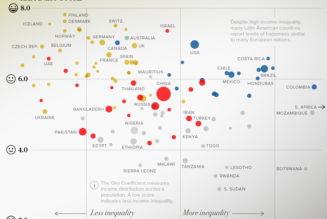
We hear that the estate of Theodore Geisel, better known as Dr. Seuss, will withdraw from sale a couple of that bland old liberal’s books. In one of them, as I have seen, there is a picture of a Chinese man eating with chopsticks. Science having proved that Chinese men do not eat with chopsticks, I agree with the decision. Only I find that it does not go far enough.
Imagine that you are a princeling, and you happen upon those stories of royal vanity and folly, The Five Hundred Hats of Bartholomew Cubbins and Bartholomew and the Oobleck. I doubt you will ever get over it. King Derwin of Didd would cut off Bartholomew’s head because, try though the boy may, he cannot take his hat off as the royal entourage passes by without another hat popping up in its place. The same King Derwin, weary of the rain and sun and fog and snow, gets his magicians to make green sticky oobleck come down, and it clogs up the whole kingdom until Bartholomew demands that the king say the only magic words that will work: “I’m sorry.”
Kings, as science has shown, like to behead their citizens over trivialities, and, impatient with the natural world, they would set up any other, so long as it was not natural but in their determination. But what good does the truth do for the princeling? He might hang himself from the next chandelier, and then think how sorry his governess will be.
So by all means, those books must go too. Then there is The Cat in the Hat. It is a piece of reactionary propaganda, written at a time when Dr. Seuss changed parties. We know that there is no such cat. The boy and the girl alone at home on a rainy day — they are the ones who make the house a wreck, and they feel guilty about it. They are themselves Thing One and Thing Two. Judith Butler surely has written about this story somewhere: Through her lens, the children in The Cat in the Hat really want to deconstruct their bourgeois lives and to kill their hegemonic mother, but instead the Physician causes them to externalize their crypto-sexual desires, the “making a mess,” and then to turn their anarchic and creative psycho-physiological impulses against themselves, in “cleaning up,” thus confirming the mother, who is obviously more father than mother, in her oppressive status as parent and lawgiver. Let the tumbrils roll.
Who can bear How the Grinch Stole Christmas? Here at last, one might think, is a text to unite both believer and infidel: the believer, because the book treasures Christmas in the wrong way, and the infidel, because it treasures Christmas at all. Quite aside from its treatment of the slave-dog Max, representing all those socially underprivileged souls who are driven to cooperate in evil against their own consciences and interests, what do we have here that is not poisonous? Just when science has proved that Christmas does not exist, along comes this charlatan with his syrupy elixir of good feeling, replacing Jesus the Messiah with a warm glow, and the apostles with benevolent Whos swagging their bellies left and right as they hold hands and sing. The world does not need a Christmas without Christ, because it does not need a Christmas at all. So say the new priests, while the old priests say that without Christ the Doctor himself would never have had anything to sell.
If there must be a book about the matter, let someone at the estate write How the Grinch That Stole the Grinch Stole Christmas, with the stipulation that the new Grinch must be a hero for our time. The new Grinch must slander and demolish. If we were apt to believe sexual stereotypes, and we are not, we might say that the slander would interest the girls, and the demolition would interest the boys. In short, in How the Grinch that Stole the Grinch Stole Christmas, there would be something to please everybody.
Since science has proved that moral guilt is contagious, all film copies of The Grinch must be gathered up and destroyed; and, to derive the greatest social benefit from it, let the means be a bonfire in California during the next power outage. The cartoonists for The Grinch were associated with Chuck Jones, creator of the rape-culture hero Pepe Le Pew, the amorous skunk a la Francaise who cannot take “Non” for an answer. Nor let it be an excuse that Pepe never gets the girl cat he mistakes for a girl skunk, or that we laugh at him for his Charles Boyer accent and his pompous ways — that he is frustrated always, like Wile E. Coyote trying to catch the Roadrunner, or Elmer Fudd trying to catch Bugs Bunny, or Daffy Duck trying to catch anything. Jones’ body should be exhumed and hanged, as an example to our properly political and puritan youth: Don’t Let This Happen to You.
What can I say about One Fish Two Fish, Red Fish Blue Fish? The mind reels. Or about Horton Hears a Who? I might almost believe that the Doctor wrote it in a moment of inattentiveness. Perhaps he was ill. He implies, nay, he says outright, that a person’s a person no matter how small. If that is not an offense against a woman’s reproductive rights, meaning her rights to dispose of a reproductive enfant accompli, then all my study of literary theory has been in vain, and Jacques Derrida should meet the flames along with Dr. Seuss.
I do not see how any true Catholic can object. If, as Jesus says, we are to be like God, and if nothing impure may stand in his presence, then we should permit nothing impure to stand in our presence, either. Let there be no Laodicean half-measures. The old popes were far too indulgent in their Index Librorum Prohibitorum. Mostly they confined their attention to frauds, smut-mongers, and brazen heretics, just as Joseph McCarthy mainly went after communist agents in the U.S. State Department. There were, no doubt, frauds, smut-mongers, heretics, and communist agents. But is that the best that an enlightened and pious people can do? I am not suggesting that the Index be revived and made more extensive. New wine needs a new wineskin. Let us have instead an Index Librorum Permissorum. It will have two considerable advantages over the old list of books prohibited. It will be much shorter. It will also be more clearly defined. No more warnings against dangerous territory. Everybody will have a clean, neat cell to dwell in. What more can the human mind require?
And what more can tolerance itself require? Among the insensible, it is impossible to give offense. Among the super-sensitive, it is impossible not to. Since feeling is the supreme moral arbiter, to heighten feeling is to heighten virtue; to feel real offenses, even when they are not intended, is to be near to the very kingdom of God. The slack old Christian is content to forgive and forbear, as he knows how frail and foolish he himself is. But the fine new Christian I have in mind need not fear. He may stand tall, having nothing to be forgiven, because he gives no offense, and he knows he gives no offense, because he holds himself bound to the Index Sermonum Permissorum, saying only what all right-speaking people say.
Regard, then, the conversation of the future:
“Hello, Bob.”
“Hello, Jim.”
“How are you?”
“Fine. And you?”
“Fine.”
What merriment lies smothered by those simple words, like buds under blank white snow! Let us then turn all our hearts toward that vision of humanity,
Exhausted and empty but ever discreet —
And to think that I saw it on Mulberry Street!
Join Our Telegram Group : Salvation & Prosperity









